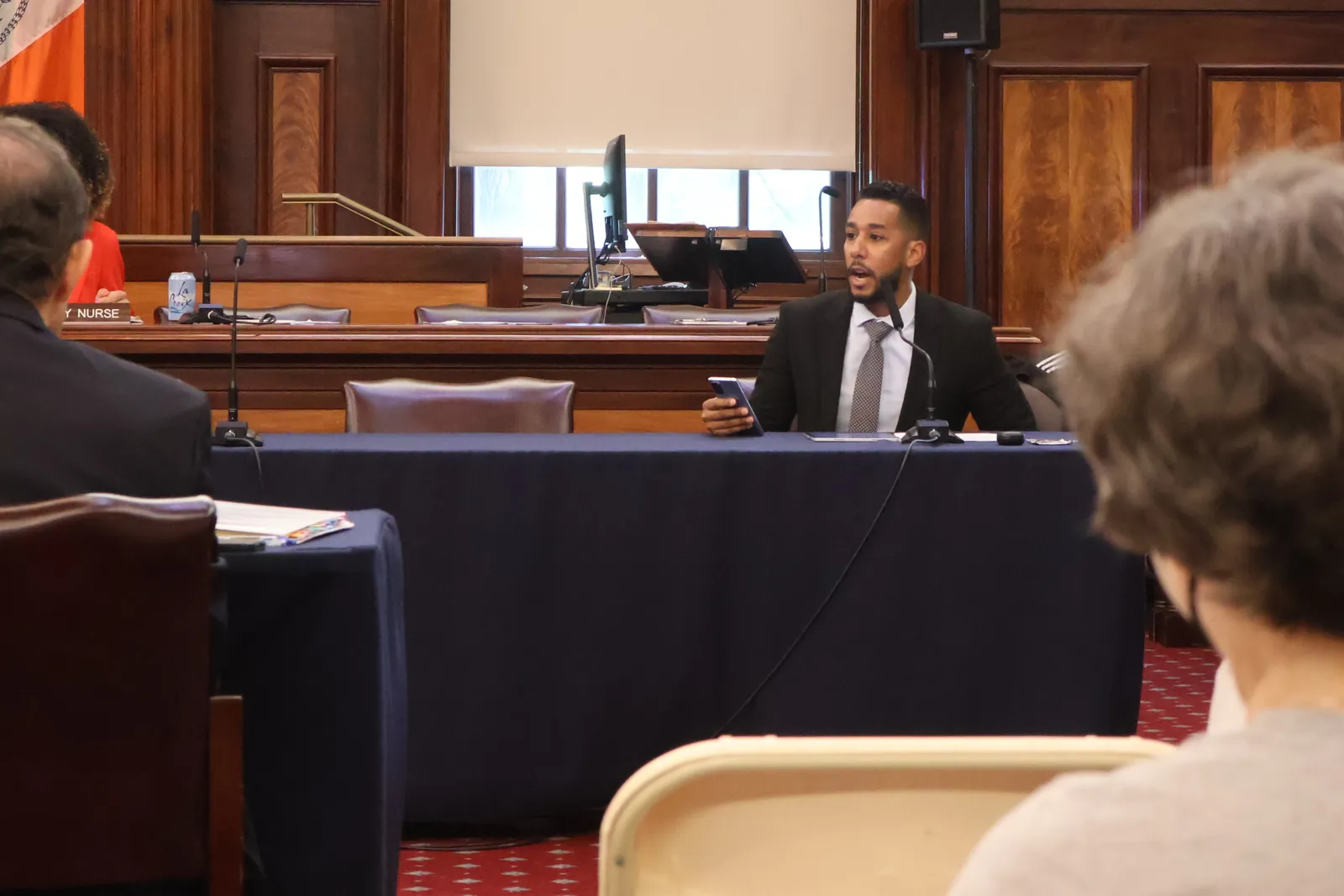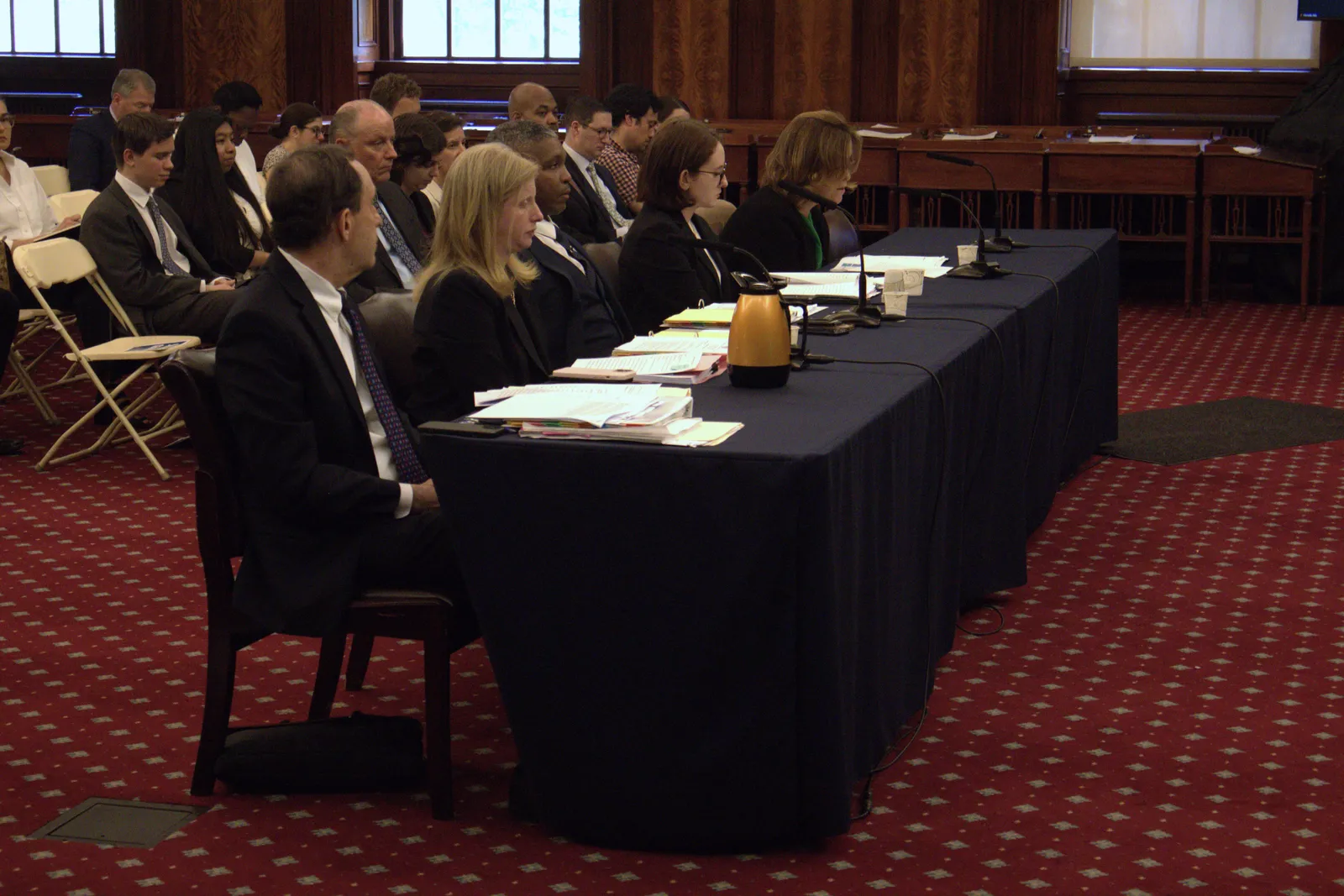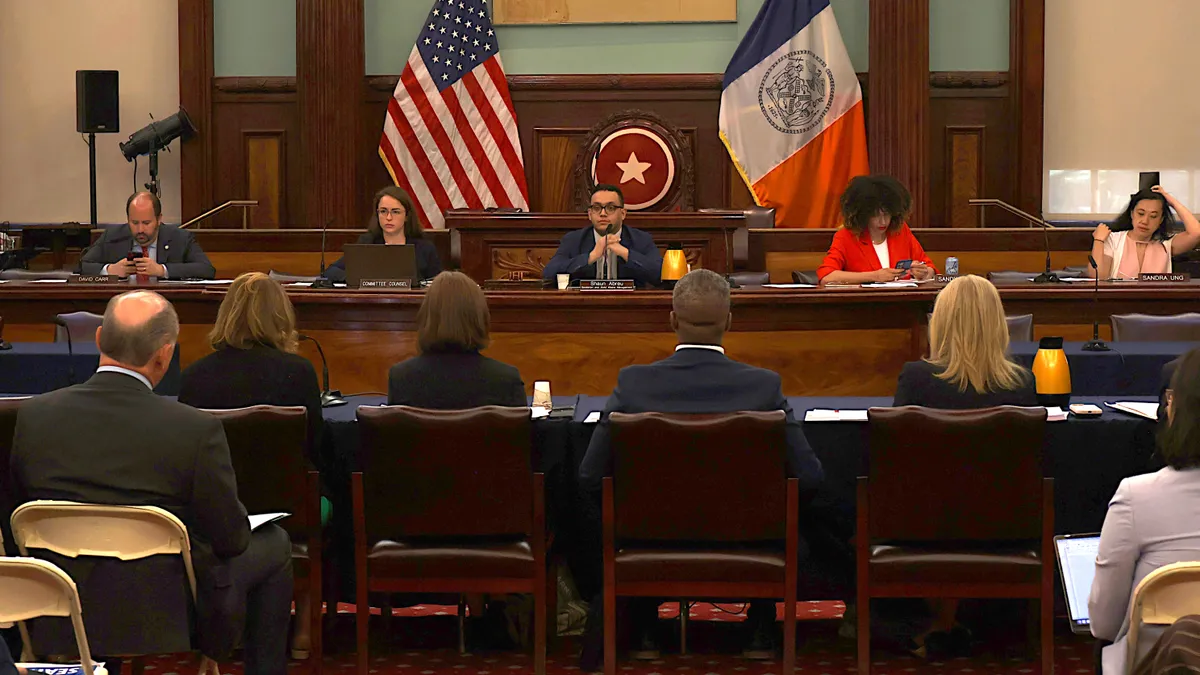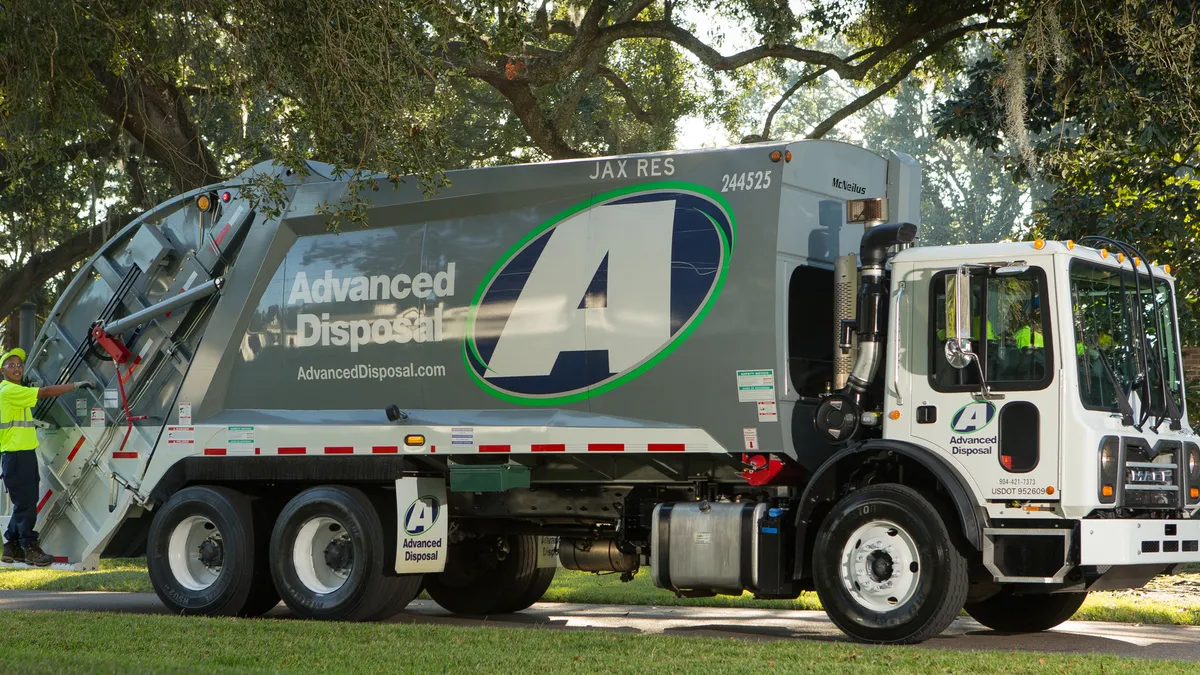New York City’s commercial waste market is preparing for a major new zone system that will reset competition for decades. A long-awaited city council hearing this week left council members and industry participants with multiple unresolved questions about what’s next.
The city’s Department of Sanitation recently awarded contracts for companies in 20 non-exclusive zones, plus citywide contracts for containerized compactor service. The goal of these agreements is to reduce vehicle miles traveled, standardize service, increase recycling rates and improve safety, among other categories.
But supporters of the initial law have questioned how companies were selected and the way pricing was weighted in those decisions. The industry has been asking for more clarity on implementation timing. Meanwhile, rumblings about acquisitions involving awardees are raising concerns about competition.
Hours before Monday’s sanitation committee hearing started, as first reported by Streetsblog, DSNY announced plans to install an independent monitor at awardee Cogent Waste Solutions as well as a related joint venture company. Cogent faces a large number of alleged violations from the city’s Business Integrity Commission and is one of multiple companies with a record of serious or fatal crashes.
“That we would put this legislation forward specifically to address Cogent and that they would get a contract is beyond me,” said Brooklyn Borough President Antonio Reynoso, lead sponsor of the 2019 law, at the hearing.

DSNY Commissioner Jessica Tisch said companies’ records were one factor of more than a dozen considered and the agency couldn’t exclude any bidder with an active BIC license.
“I did not have the authority to do that and doing that would have undermined the entire procurement and the entire program,” she said.
Council Member Shaun Abreu, chair of the committee, asked BIC why the agency kept the company in contention. Commissioner Liz Crotty said revoking a license for any company is rare. It has only happened four times in prior years, versus 150 license denials. Cogent’s license is currently up for a periodic renewal.
“This is a company we have put a lens on. They have put themselves under our lens and it's something that we take very seriously,” she said.
Any company operating in the city must have a BIC license, and loss of that license would trigger the loss of a zone contract. DSNY will also have additional authority once contracts take effect.
“I submit to you and to every carter listening that crashes where they are found at fault, and a pattern of them, will constitute material breach in this program,” said Tisch, speaking to the council. "We have a lot of regulatory authority that you have given us and I am not afraid to use it."
Cogent said in a statement after the hearing that it would “work productively” with the monitor and disputed how it was characterized.
“We maintain the most rigorous safety standards in the industry, using new equipment operated by qualified union employees under the supervision of highly-trained, certified safety professionals and 24-hour video and GPS surveillance,” wrote spokesperson David Vermillion. "We strongly disagree with Borough President Reynoso's comments about our company, which illustrate a lack of familiarity with our employees and our operations.”
Local elected officials also implied they weren’t pleased with some of DSNY’s other decisions.
“There were good players who didn't make it who had better records,” said Council Member Sandy Nurse, calling for companies to be “held accountable” because “we don't want to undermine the whole intention of this bill.”
Companies that weren’t selected can possibly still serve as subcontractors. DSNY is reviewing initial submissions and expects to soon make subcontractor decisions for the first zone to launch, Queens Central.
Another recurring grievance at the hearing was how the RFP process, which started in 2021, emphasized pricing. DSNY originally weighted pricing at 35%, but increased that to 40% in May 2022 amid a concern about pandemic-driven inflation.
Tisch said DSNY wanted to avoid “massive price spikes that have hampered similar reform events around the country.” Reviewers assessed factors from other criteria first, but Tisch said all plans hinged on pricing.
“Pricing was very important because it was the key to getting all of the other benefits intended by the law,” she said.

Abreu said after the hearing that “I was especially dissatisfied with the commissioner's giving special weight to price over 13 other factors.” He noted that it’s important to protect small businesses, but not at the expense of other considerations.
“We want to see how those rubrics were applied on a case-by-case basis, universally through these applications,” he said.
DSNY said some companies’ maximum rates will be at or below BIC’s rate cap in 18 of the 20 zones. The current cap is $24.21 per cubic yard and $15.89 per 100 pounds, which the industry feels isn’t sufficient. BIC announced plans on Thursday to raise rates to $26.87 and $17.64 respectively.
The zone system’s pricing structure will be different, by incentivizing discounts on organics and recycling collection and allowing carters to charge based on service frequency. DSNY said its assessment of maximum rates being lower than the rate cap accounts for all of these factors.
The agency recently released a rate calculator, which has become popular among carters looking to scope out their competition. Rates vary widely, in part due to how companies structured their frequency charges. All maximum rates for curbside garbage in Queens Central are above the current cap; one company’s recycling and organics rates are below. Rates in some other zones are well below the current cap.
Annual adjustments will kick in starting July 2025, but sources say this won’t offset potential losses for any companies that may have misjudged pricing for 10-year contracts.
DSNY will start sending mailers to customers in Queens Central on July 1 ahead of implementation in September. All customers must have a signed contract by early January. The five companies with citywide contracts will also begin service in this zone.
Tisch said the agency needed time to review results of the first waste zone before sharing next steps. She committed to seeing the program through, but declined to say when the other 19 zones would start.
"We do have a two-year schedule in our planning. I don't want to commit to that to you today,” she said.
No awardees testified, but others urged the city to share more information.
“The awardees deserve to know the entire schedule and they deserve to know that now,” testified David Biderman president of Biderman Consulting, citing the time needed to order trucks and hire staff. Reynoso said “there’s nobody in this room that is in this business, outside of DSNY, that doesn't think this is taking too long.”
In the meantime, all awardees must complete required safety training this summer. They’re also watching proposed technical changes from DSNY and BIC.
The dozens of licensees who didn’t win contracts, and may not become subcontractors, face tough decisions.
“Should they sell now or go out of business, or should they wait a few years until the zones in which their customers are located are subject to CWZ?” asked Biderman.
Local M&A activity has been quiet for years, due to uncertainty about this program, but that’s expected to change soon and Abreu introduced a bill to limit its impact on commercial waste zones.
“When things are afoot that we believe are against the spirit of this law, specifically the preservation of competition within the commercial waste zones, it should be a scary thing,” he said in an interview. “That's going to lend itself to a monopoly, and we believe it'll impact pricing in a negative way.”
The bill says if any deal results in a company servicing more than 15 zones then DSNY would have to authorize an additional awardee in that zone or terminate the acquiring company’s agreement. Tisch said the concept was “great,” but wanted to see unspecified language changes before endorsing it.
BIC may be considering multiple pending acquisitions involving awardees, according to sources. Nicole Mathias, director of policy, declined to comment on the number but said “as part of our normal course of business, at any given time there are typically pending sale and subcontract applications under review.”




















